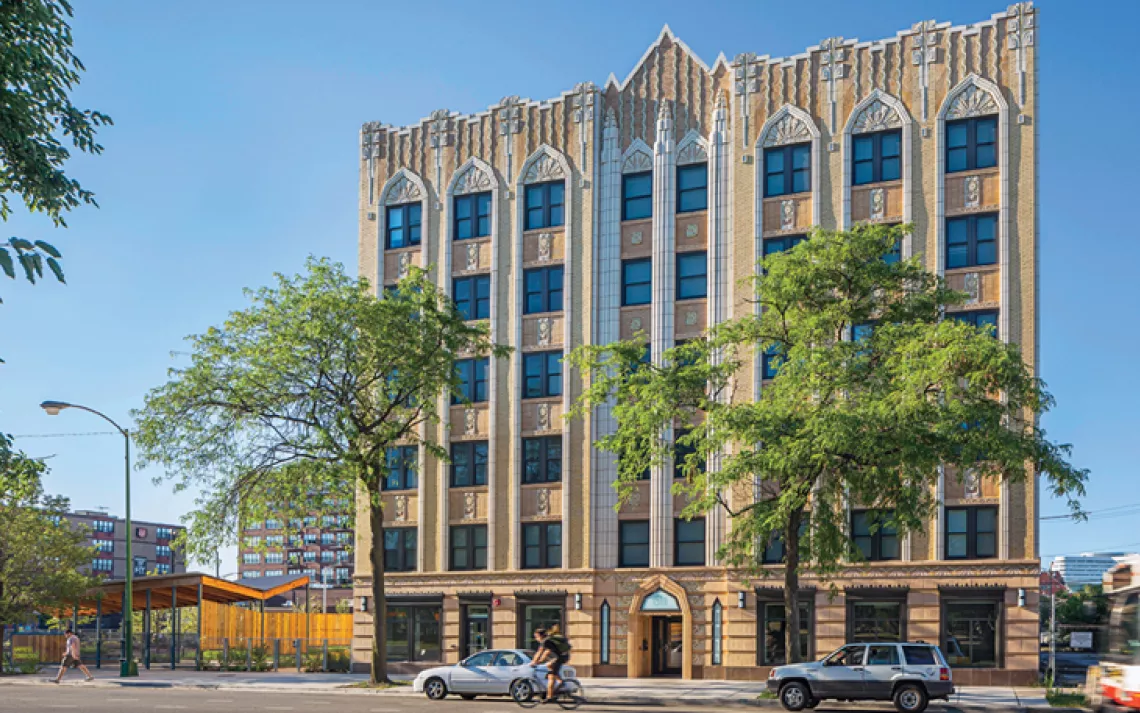Architects Advocate on Climate Change
A coalition of architects is growing its base to speak out against global warming

The Website of Architects Advocate Action on Climate Change | Photo courtesy of Architects Advocate
Three years ago, board member Tom Jacobs thought the American Institute of Architects should speak out against climate change. The group decided that making a statement would be too political, so it didn’t take a stand. Jacobs, though, didn’t agree with that decision. Last summer, as the election was heating up and Donald Trump gained a reputation for calling climate change a hoax, Jacobs vowed to speak out. In July, he talked to the four partners at his firm, Krueck and Sexton, and they agreed it was time to speak up. They resolved to reach out to all of the architects they knew to form a group called Architects Advocate Action on Climate Change. They would build a website listing all of the supporters and create a banner where firms could show support. Their hope was to build momentum for future action. “Ever since we started, and this continues to today, we’ve had a broad goal, which says we have to enact meaningful legislation to counteract climate change,” Jacobs says. “We have kept that purposefully broad.”
At the end of July, the architects at Krueck and Sexton started reaching out to friends and colleagues, asking them to join. By September 1, when they launched their site, they had roughly 50 firms showing support. They asked those members to extend invitations to their contacts. By the beginning of November, they had 170 firms involved. Jacobs is hoping by early January to have 1,000 firms in the group. “So it’s no longer based on personal pleas for colleagues to join,” Jacobs says. “It’s starting to self-generate, primarily through social media.”
In the United States, buildings account for 45 percent of total carbon dioxide emissions. Architects are on the front lines of being able to battle those emissions based on their plans for new buildings. They can convince clients to choose designs that will help reduce energy use. Jacobs says architects also have a good reputation with the public as unbiased and objective problem solvers. The 48-year-old principal says it’s important that architects are speaking up about a topic that 97 percent of scientists agree on. “In the broad sense, my hope is that architects wake up and realize that it is no longer an option to be apolitical,” Jacobs says. “The whole idea that one shouldn’t be political is completely backward because what being political means is that you participate in the decision-making process on issues that affect your community.”
Jacobs says the results of the recent election make it even more important to expand the group’s base. “We are now in emergency mode because the president-elect said that he would pull out of Paris, and he has appointed a climate-science denier to lead the EPA,” he says.
As the organization grows, Jacobs is making sure that it does so in a way that other groups can use its tools in the future. “We have crafted the name of the organization and the brand and the logos with the idea that other professions could adopt this,” he says. “Let’s say engineers become aware of our efforts and say, ‘Hey, that’s actually pretty cool. Why don’t we start Engineers Advocate?’ We would be more than happy to give them everything we know.”
 The Magazine of The Sierra Club
The Magazine of The Sierra Club



